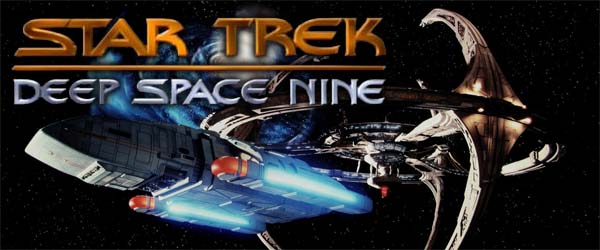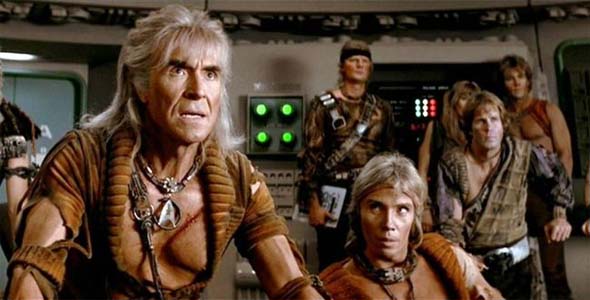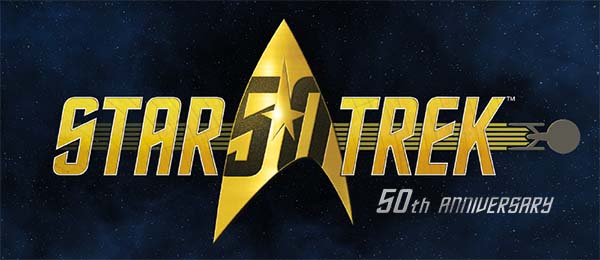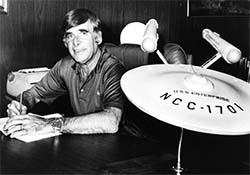
After posting 2 essays about how Deep Space Nine realizes the ideals of Star Trek and how it was ahead of its time, I would feel remiss if I concluded any discussion of the greatness of Star Trek Deep Space Nine without praising its outstanding cast of recurring guest actors and characters. Seriously, DS9's recurring guest characters are some of the true highlights of the entire show. Their natural charisma as performers is bolstered by the show's fundamental structure as a serialized story, and its setting on a stationary outpost. These two decisions in the design and production of the show allow guest characters to recur frequently, with their own storylines and arcs, and helps make them just as vital to the plot of the show as any of the main cast.
As mentioned previously, Deep Space Nine wasn't a starship like the Enterprise. It didn't have the luxury of sailing off into the sunset at the conclusion of every episode, leaving the people and problems of the episode behind. The crew of Deep Space Nine were stuck dealing with the long-term fallout of the events of any particular episode, and that included the circumstances of characters in the station's immediate neighborhood. Some of these characters come and go, leaving Deep Space Nine behind forever. But others become permanent fixtures on the show, almost as much a part of the main cast as Armin Shimerman or Andrew Robinson.
Being a stationary starbase, a diverse collection of guest characters repeatedly visit Deep Space 9.
The following post will discuss specific plot points regarding multiple guest characters, including some who don't appear until the later seasons of the series. As such, this post will have the most explicit story spoilers of any of these 3 Deep Space Nine retrospectives. Read on at your own risk.
Star Trek's best villain(s)
The highlight of Deep Space Nine's guest cast is its principle villain, the best villain in all of Star Trek: Gul Dukat.
Yes, you read that right. Dukat is Trek's best bad guy.
Dukat is better than Khan. Better than General Chang (but only barely). Better than the Borg (and their stupid queen). Certainly better than the Duras Sisters or any of Trek's rogues gallery of throwaway villains like Commander Kruge. He's better even than Q -- if you want to consider Q a "villain" to begin with.
 - Star Trek II: The Wrath of Khan, copyright Paramount Pictures.
- Star Trek II: The Wrath of Khan, copyright Paramount Pictures.
Sorry Khan, I do not think you are Star Trek's best villain. You're 2nd place, at best.
Yes, Dukat is my favorite Trek villain -- by a long shot. It's not even close. [More]
a258d721-4fc4-450e-b1ec-e89bbfc5cfb3|0|.0
Tags:Star Trek, Star Trek: Deep Space Nine, Deep Space Nine, space station, demagogue, Quark, Armin Shimerman, Garak, Andrew Robinson, Gul Dukat, Marc Alaimo, Kai Winn, Louise Fletcher, Weyoun, Grand Liquidator Brunt, Shran, Jeffrey Combs, Rom, Max Grodénchik, Nog, Aron Eisenberg, Grand Nagus Zek, Wallace Shawn, Ishka, Moogie, General Martok, J.G. Hertzler, Ziyal, Damar, Michael Eddington, Kenneth Marshall, Agent Sloan, Section 31, Vic Fontaine, Ezri Dax, Nicole de Boer

On September 8, 1966, a cultural revolution started. The first episode of a new science fiction television series named Star Trek premiered on NBC. This series broke new ground in the genre of science fiction by being one of the first series ever to present high science fiction concepts to television audiences, while also using its space adventures as allegories for contemporary social and political issues. While it presented itself as mindless space adventure in the same vein as Buck Rogers and Flash Gordon, it took a serious approach to science fiction that (at the time) was limited to literature like the novels of H.G. Wells and the stories of Isaac Asimov.
Star Trek wasn't the first serious science fiction television series. Shows like The Twilight Zone and The Outer Limits had existed for a almost a decade. But Star Trek differed from these series in that it depicted a revolutionarily positive and uplifting version of the future of humanity during the height of the paranoia of the Cold War. Humanity, according to Star Trek would overcome the threat of mutual destruction that the Cold War between the United States and the Soviet Union posed, and we would come out the other side with a spirit of cooperation and a desire to peacefully and benevolently explore the stars, exploring strange new worlds and seeking out new life and new civilizations.
Television science fiction was dominated by childish adventures like Buck Rogers
and more cynical anthology series like The Twilight Zone that drew off of Cold War paranoia.
The show was created by Gene Roddenberry, a former United States army air force pilot and Los Angeles police officer who eventually found his calling as a television writer and producer. He wrote and produced some police dramas and westerns before pitching his defining project: Star Trek. The show was picked up by Desilu Productions, a company that was run by Lucille Ball (yes, the titular actress of I Love Lucy) and her husband. The production of Star Trek was tumultuous. The show was canceled by NBC after its second season, only to be revived due to an unprecedented, fervent letter-writing campaign staged by its fans. It did not survive its third season, however, as Desilu Productions was rapidly running out of money, was forced to cut budgets, and NBC moved the show to the dreaded Friday night "death" slot. In an age before DVRs, or even VCRs, if people were out on the town on a Friday night, and they missed an episode of a show, then that episode simply went unseen.

Gene Roddenberry's optimistic vision
of the future remains endearing.
The series eventually saw tremendous success after its cancellation due to its episodes being syndicated during the 1970's. It gained a cult following that grew and grew, setting up conventions that would come to draw thousands of attendees. Though not immediately apparent, Star Trek would grow to become one of (if not the) most successful science fiction properties in the world. The series is often cited by scientists, engineers, and astronauts as their inspirations for their careers, and the technology of the series has inspired many real-world technological innovations, such as wireless communication, mobile devices (in particularly mobile phones), speech-recognition software, and so on. Roddenberry became the first TV writer to receive a star on the Hollywood walk of fame, has been inducted into the Science Fiction Hall of Fame and the Academy of Television Arts & Sciences Hall of Fame, and was one of the first human beings ever to have his ashes carried into earth orbit... [More]
a36b33e8-1404-42b1-9723-a4759be0acee|2|5.0
Tags:Star Trek, Star Trek: the Next Generation, Star Trek: Deep Space Nine, Star Trek: Voyager, Star Trek: Enterprise, Star Trek: Discovery, Star Trek VI: the Undiscovered Country, Star Trek: Beyond, birthday, anniversary, science fiction, allegory, humanism, humanist, Gene Roddenberry, NBC, CBS, Fox, Paramount, Desilu Production, Lucille Ball, Cold War, Balance of Terror, The Measure of a Man, Kirk, Spock, Data, Gul Dukat, Seven of Nine, Star Trek the Experience, Las Vegas, Wallace Shawn, Grand Nagus Zek
|

| 12 | | | | | | | 60 | | 11 | | | | | | | 55 | | 10 | | | | | | | 50 | | 09 | | | | | | | 45 | | 08 | | | | | | | 40 | | 07 | | | | | | | 35 | | 06 | | | | | | | 30 | | 05 | | | | | | | 25 | | 04 | | | | | | | 20 | | 03 | | | | | | | 15 | | 02 | | | | | | | 10 | | 01 | | | | | | | 05 |
|